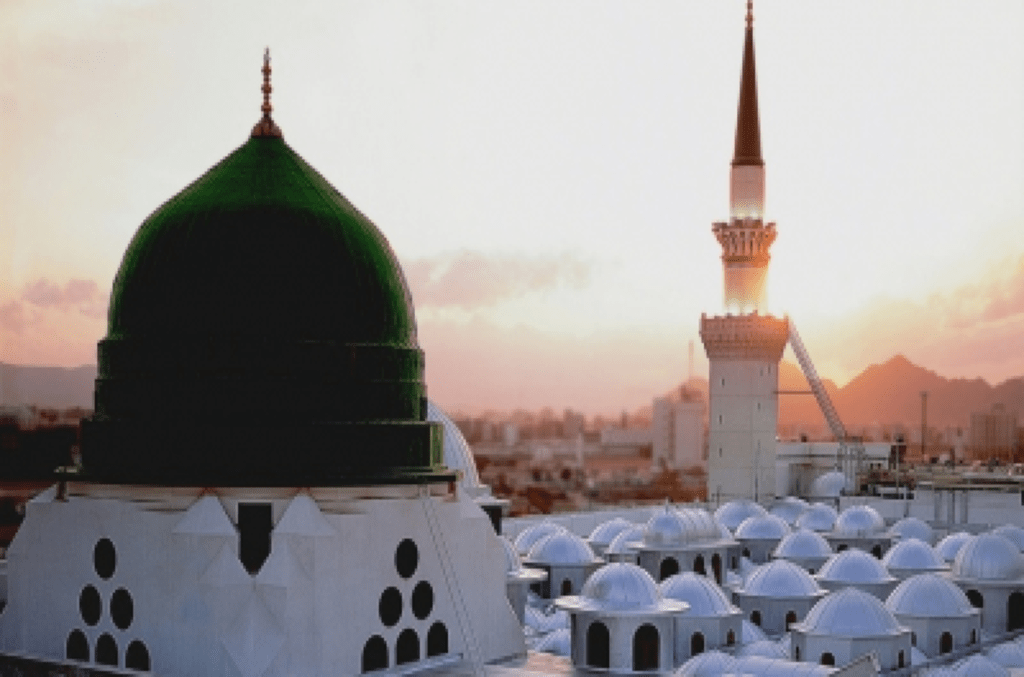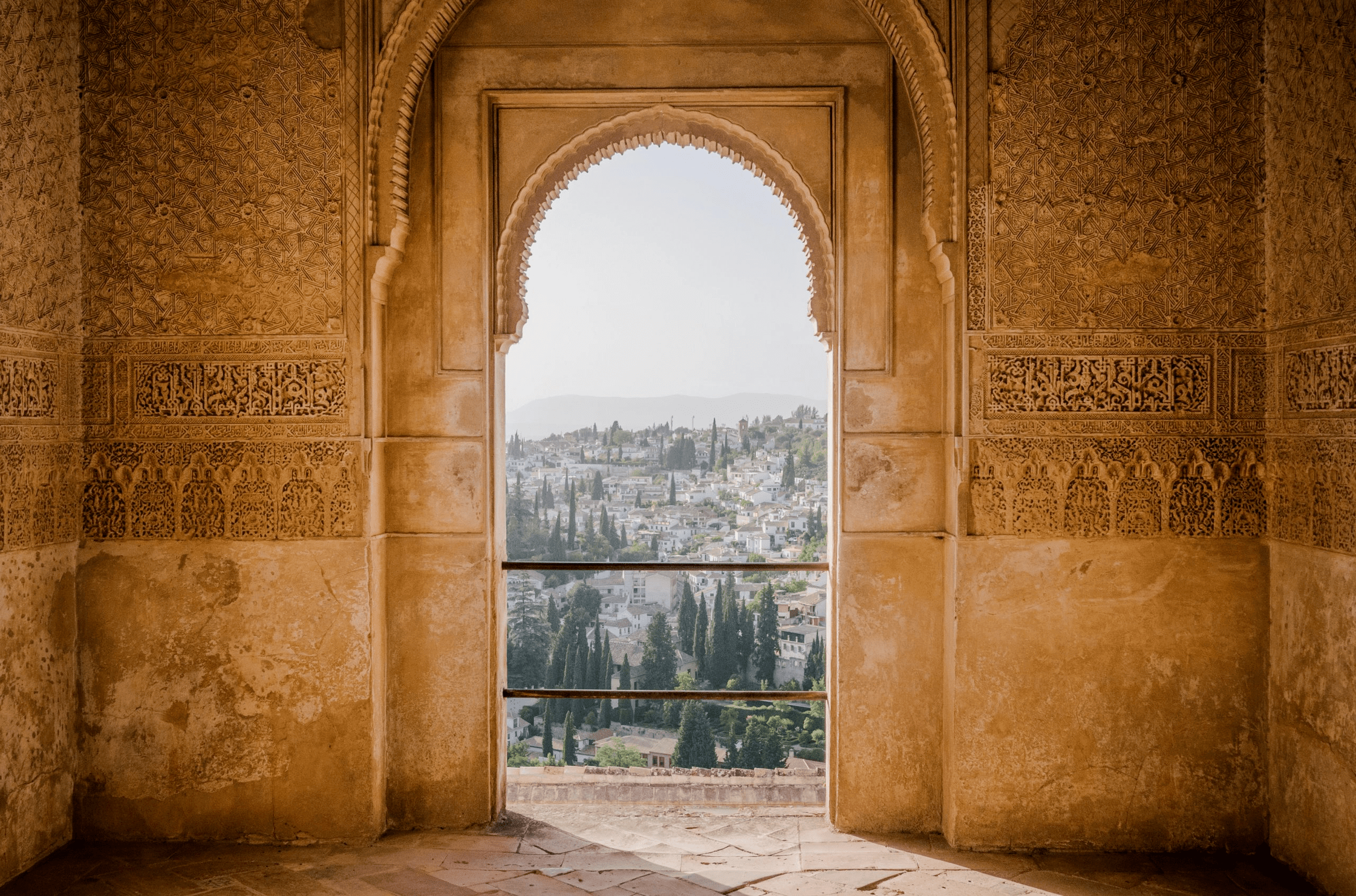Start your du‘ā’ with praising Allah.
The Messenger of Allah ﷺ said: “There is none who likes to be praised more than Allah does.” (Bukhārī)
The Messenger of Allah ﷺ once heard a person making du‘ā’ during prayer. He did not glorify Allah (ʿazza wa jall) nor invoke salawāt upon the Messenger of Allah ﷺ. The Messenger of Allah ﷺ said: ‘He was too hasty.’
He called him and said: ‘When one of you makes du‘ā’, he should start off with praising and glorifying His Lord (ʿazza wa jall), and should then invoke salawāt on the Prophet. He should then make du‘ā’ for whatever he wishes. (Abū Dāwūd)
Praising Allah (ʿazza wa jall) is one of the most commendable acts a slave can perform. The Messenger of Allah ﷺ told us that the best words a slave can utter after the Qur’an are the words of praise and glory. (Aḥmad) It is the only worship that will be performed by the inhabitants of Paradise; and will be the manner in which they ask from Allah (ʿazza wa jall).
Allah (ʿazza wa jall) says: “Their call therein will be ‘how Perfect You are, O Allah’ and their greeting therein will be ‘peace’ and the end of their call will be ‘Praise be to Allah, the Lord of all the worlds.’” (10:10)
The Messenger of Allah ﷺ also said: “The inhabitants of Paradise… will praise and glorify Allah as easily as you breathe.” (Muslim)
When one reflects on the du‘ā’s in the Qur’an made by the Prophets, one marvels at the courtesy, shyness and humility which shines through their words. Each du‘ā is a testimony to their awareness of and deep intimacy with their Lord. Rather than rushing to make their requests, they praised Allah, glorified Him, and asked through His Most Perfect Names.
We see this in the du‘ā’s of the Messenger of Allah ﷺ.
The hadith of intercession mentions that the believers will ask various Prophets to intercede for them to Allah (ʿazza wa jall). Upon their refusal, they will approach the Messenger ﷺ who will be given permission to present Himself before Allah (ʿazza wa jall). He ﷺ said:
“When I will see my Lord, I will fall down in prostration before Him and He will leave me in prostration as long as He wishes, and then it will be said to me: ‘O Muḥammad! Raise your head and speak, for you will be listened to; and ask, for you will be granted your request; and intercede, for your intercession will be accepted.’ I will then raise my head and praise my Lord with certain praises which He will inspire me, and then I will intercede.” (Bukhārī)
Thus the Prophet’s ﷺ special praise of His Lord will be a means for his intercession to be accepted.
The angels have also shown us how to make du‘ā by praising Allah (ʿazza wa jall). Before asking for forgiveness for ‘those who have repented and followed Your way’ they initiated their du‘ā’ by saying: ‘Our Lord, You have encompassed all things in mercy and knowledge…’ (40:7)
Though many of us regularly make du‘ā’, we fail to use this gift of praising Allah (ʿazza wa jall). Sadly it does not spring from our hearts as it should because we have failed to recognise and know Allah (ʿazza wa jall) as He deserves to be known. Allah (ʿazza wa jall) says: ‘They did not hold Allah in His true esteem.’ (39:67) When we recognise the greatness, grandeur and glory of Allah (ʿazza wa jall), our praises for Him will flow easily and naturally.
How can we praise Allah?
1. We praise Him as He has praised Himself. This is the best way to praise Allah (ʿazza wa jall). This can be learnt by reciting the Qur’an, reflecting upon it and forming a strong bond with it, since it is replete with Allah (ʿazza wa jall) praising Himself.
2. Praise Him as our beloved Messenger ﷺ praised Him. Of Allah’s creation, none surpassed him in knowing Him and appreciating Him as He ought to be.
3. Praise Him with words used by the companions (radiy Allāhū ‘anhum) and the pious predecessors.
4. Praise Him with one’s own words emanating from the heart, so long as it does not contradict sound beliefs.
5. One of the best ways of praising Allah (ʿazza wa jall) is through His Beautiful Names.
“The best slaves of Allah on the Day of Judgement will be those who frequently praise Him.” (Tirmidhī)







